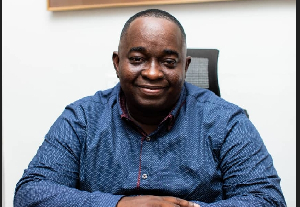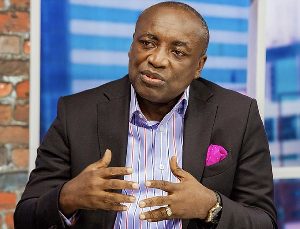Private legal practitioner, John Ndebugre has lauded the Electoral Commission for cracking the whip to disqualify “charlatans” from contesting the December 7 elections.
The former PNC Member of Parliament for Zibilla constituency in the Upper East region maintains the general election is a competition and its rules must be complied with. “This is a contest and in every human endeavor there are rules and regulations you must comply with. Therefore if you fail to comply, you will be excluded. The Electoral Commission took time to assign reasons for each of the disqualified candidates so I don’t see why they cannot accept that, unless you look at the law and say what the EC chair said is false.”
Opportunity to correct errors
Speaking to the defense put up by the affected parties that they were not given the opportunity to correct their errors before disqualification, John Ndebugre maintains the law is clear; adding the EC Chair only applied the rules. He questions why violations that border on criminalities should be dealt with by mere explanations. Some of the reasons for disqualification border on criminality, he posited, “are you telling me when you commit a criminal offense you should be called to explain? A number of them were criminal acts.
The law clearly states that you can’t endorse more than one candidate. Should you be called to explain your violation? “What the law contemplates by regulation in the Constitutional Instrument (CI) 94 is minor errors like wrongly spelt names, not criminal offense as outlined by the Electoral Commission.”
Due diligence
Lawyer Ndebugri further argues that the omissions and violations are clear indications of careless attitude that must not be entertained for the high office of the president.
He is of the view that the disqualified aspirants did not show seriousness and must face the consequence of their actions. “I think that if you want to be president of this republic, you must convince us that you are diligent and serious.
So if you ask someone to endorse you, you’ll have to take responsibility to scrutinize them. “The problem is that people sit in Accra and send the forms to the regions for people to complete them anyhow and bring them for filing. Do you expect the EC to do that job of checking for you? “These electoral laws are strict liability laws, it makes you responsible. The burden shifts to the aspirant so if you just pick any body’s signature then you have yourself to blame”.
CI 94 regulation 4 stipulates nomination period
On the argument that regulation 9.2 of the CI 94 provides a window of opportunity to correct errors but the EC disregarded that, Lawyer Ndebugre insists the electoral body could not have done anything within the circumstances.
(2) The returning officer shall inform a candidate that the candidate’s nomination is invalid where
(a) the particulars of the candidate or the persons subscribing to the nomination paper are not as required by law; or
(b) the nomination paper is not subscribed to as required by law, and shall give the candidate an opportunity to make amendments or any alteration necessary, within the stipulated nomination period.”
But Ndebugre insists the window of opportunity has elapsed.
“The stipulated period of 29th and 30th September is over. Anything outside the period will be illegal even the EC does not have any jurisdiction or power to change anything.
This is because the Progressive People’s Party (PPP) needlessly took the EC to court and so the EC had to put on hold the acceptance of the banker’s draft and you can’t use that to extend the nomination period.”
He also disagreed with US-based Ghanaian Law Professor, Kweku Asare’s view that the EC erred in not allowing for some corrections. “I don’t think so. Prof Asare knows that the law is always interpreted in accordance with the prevailing circumstances,” he states.
General News of Thursday, 13 October 2016
Source: 3news.com
Nduom, Konadu, others have no case - Ndebugre
 Nana Konadu (Top L) Papa Kwasi Nduom (Top R). Hassan Ayariga (Bottom L) Dr. Edward Mahama (Bottom R)
Nana Konadu (Top L) Papa Kwasi Nduom (Top R). Hassan Ayariga (Bottom L) Dr. Edward Mahama (Bottom R)












